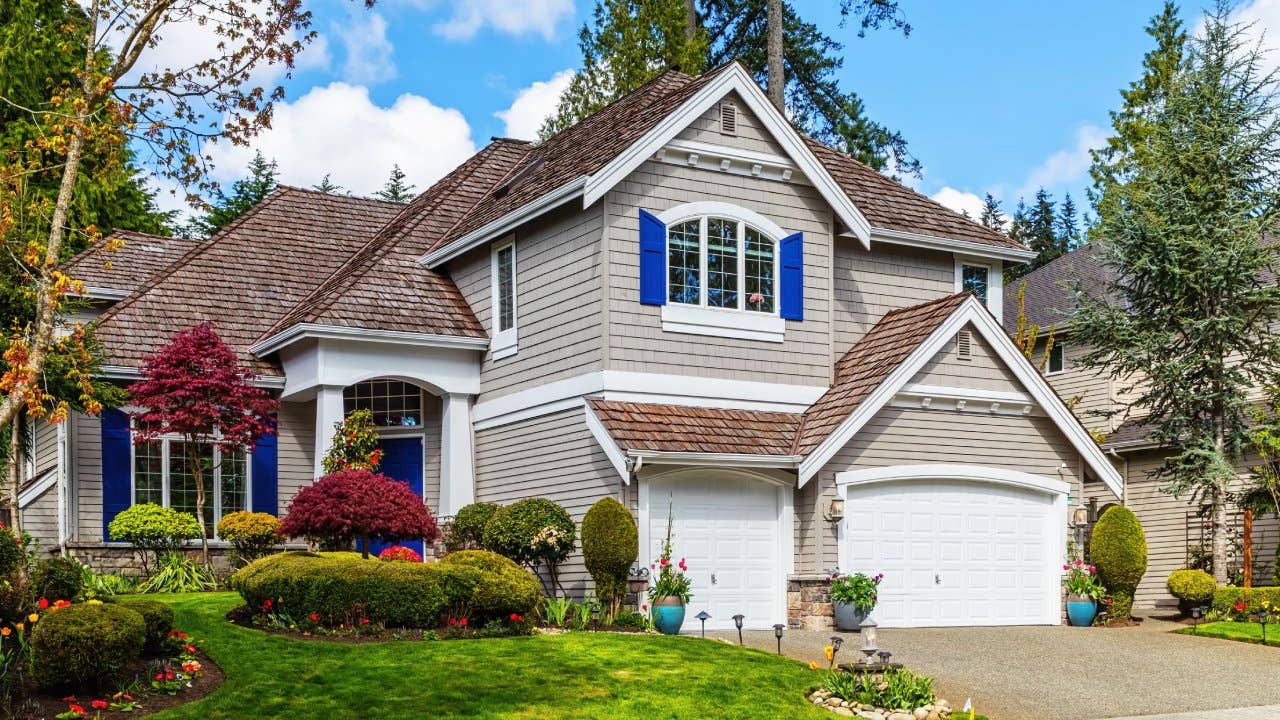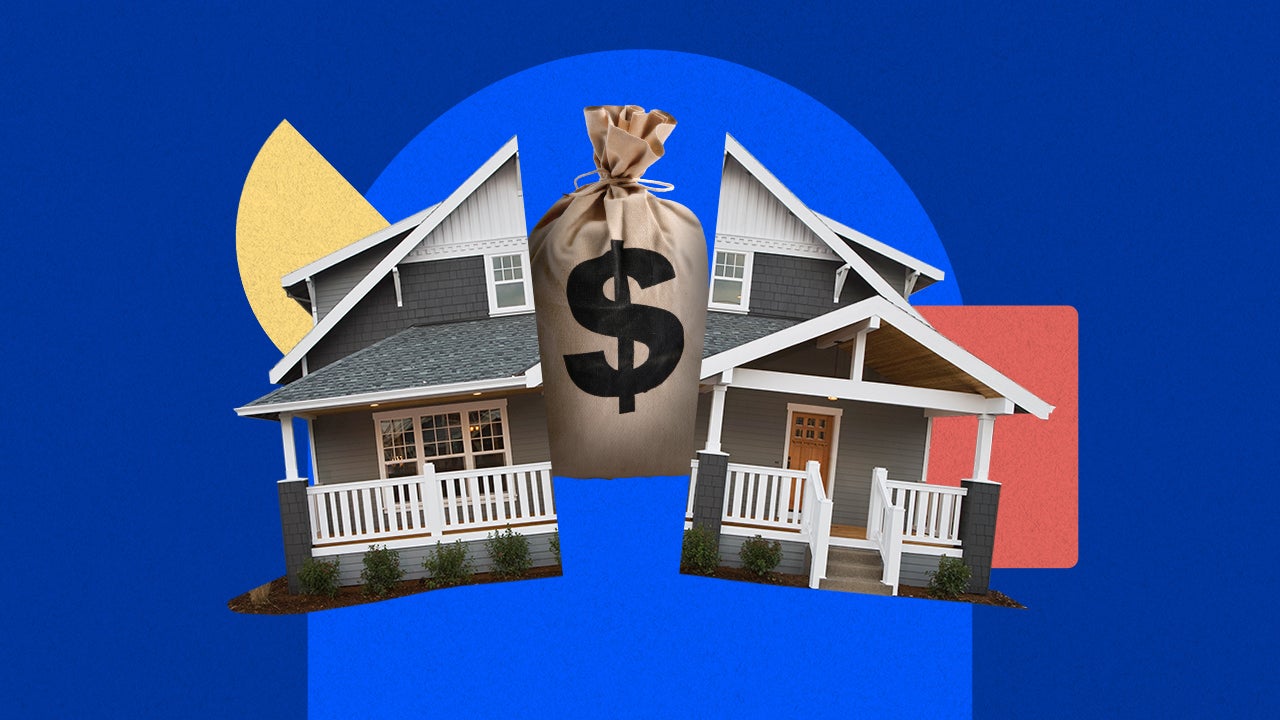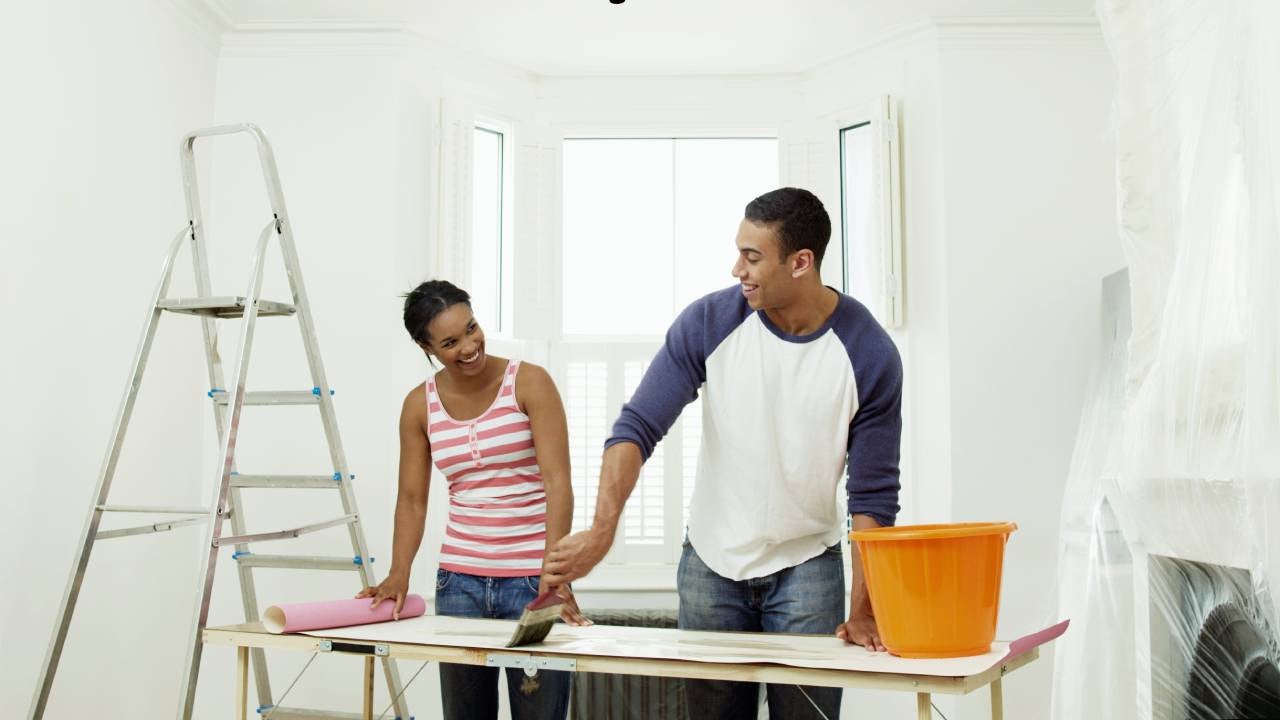Is buying a house worth it?

To buy or to rent? That is the question. And in today’s inflationary environment, finding an answer can feel very daunting. According to Banrkate’s latest Financial Security survey, 73 percent of people who want to eventually own their homes point to affordability as the biggest hurdle standing in the way.
Even if you can manage to come up with the cash for a down payment and closing costs — no small feat — is buying a house actually worth it? Read on for some of the key considerations to keep in mind as you decide whether buying a house is a smart idea for you.
Is it a good idea to buy a house?
If you’re thinking about buying a home today, you need to have a realistic understanding of what tomorrow looks like. Buyers should plan to be in a home for at least three to five years to hit a break-even point that recoups all the closing costs associated with the transaction, says Mike Opyd, president/owner and managing broker at RE/MAX Next in Chicago. According to data from CoreLogic’s ClosingCorp, the typical single-family home purchase comes with nearly $7,000 of closing costs on top of the down payment and monthly mortgage bills, so be sure to factor that in as you budget.
Paying thousands in fees might not sound great, but at some point, most people will want to plant permanent roots. When you’re paying a mortgage, you’re building equity in your home and allowing the home to appreciate, increasing the value of your asset. That’s not true of paying rent: “You could rent your whole life, but it is literally money that’s coming out of your pocket and going into someone else’s, who gets to spend it or invest it,” Opyd says. “You don’t benefit other than having a place to live.”
However, while no one wants to line a landlord’s pockets forever, not everyone is financially ready to buy a house. Your credit score and debt-to-income ratio play a huge role in how a lender perceives your risk factor as a borrower. If you have a large chunk of other debt, such as outstanding credit card bills, it’s smart to focus on shrinking that amount first before trying to secure a mortgage. And if your credit score is less-than-stellar, taking some time to boost it can get you a lower mortgage rate and make a big difference in how much you can afford to spend on a home.
A primary residence is not ‘an investment’
If you buy a home in a desirable location, it’s highly likely that the value of your property will appreciate over time. That’s an investment, right? Well, yes and no. Your primary residence should not be thought of as an investment — at least not in the traditional sense.
While becoming a homeowner can be considered an investment in your future, a primary residence is literally the place where you live. It’s not an investment property that is purchased with the objective of turning a profit — in order to make a profit, you’d have to sell it and find a new place to live. There are homeownership costs to factor in as well, such as property taxes, maintenance and insurance, so while your home value may be increasing, you’re also spending money to keep that up.
Instead of thinking of your home as a bank account, focus on what really matters: your ability to enjoy your life while you’re there. “Aim to find a place that you’re going to be happy with,” Opyd says. “It should have what you need, and maybe some of your wants, too, along with being within your monthly budget.”
Fixed housing costs vs. variable renting costs
One of the big pros of owning a home is your ability to be in better control of your budget. While property taxes and home maintenance costs may fluctuate, with a fixed-rate mortgage, your main payment will stay the same for the life of the loan. That makes budget planning much simpler.
If you’re a renter, though, your landlord can increase your monthly payment each time your lease is up. In fact, data from rental site Dwellsy shows that the median price for a one-bedroom rental jumped by more than 20 or even 30 percent in some U.S. markets between May 2022 and May 2023. That’s a big variable in your budget, as well as a huge hit to your wallet.
Ultimately, real estate is hyper-local, and the answer to the rent-or-buy question may be different in different markets. In cities where home values have skyrocketed, for example, renting may actually be the more sensible option. “There are some cities where it doesn’t make sense to buy,” Opyd says. “Even if you rent and you are technically throwing money away, it’s still going to be cheaper than trying to buy a place.”
Making your house a home
A rental may never truly feel like yours, but when you own your home, you get the benefit of being able to do just about anything you want to it: paint, remodel, replace all the light fixtures, customize to your taste. (Within HOA guidelines, of course, if your home is part of one.) This is one of the reasons why many buyers opt for a lower-priced house with potential — it allows them to make changes over time, as it becomes comfortable for their budget.
One important note to keep in mind when you’re customizing your home, though: Do it for yourself, not with the expectation that every dollar you put in now will turn into more profit later. Many home improvements add value to your property, but even so, most of them won’t recoup their full costs when you sell.
Homeowner tax breaks
While owning a home comes with a hefty price tag, homeowners enjoy some tax benefits when it’s time to file with the IRS. Many homeowners can deduct at least a portion of their mortgage interest and property taxes. Limits do apply, though, so it’s wise to work with a tax professional to figure out how to claim the tax deductions. Additionally, if you use a home equity loan or HELOC to make any updates to improve your home, you may be able to deduct that interest, too.
Next steps
If you’re in a financial position to do so and ready to stay put for at least a few years, buying a house is totally worth it. You’ll gain stability, build equity and a retain sense of ownership and control, rather than being at the whim of a landlord.
However, the process involves a lot of money and a lot of potential for mistakes. So, rather than DIY-ing it, consider working with an expert. “Do some research to get started, and then work with a professional to navigate the process,” Opyd says. Teaming up with a licensed, experienced local real estate agent gives you a partner who can guide you through the twists and turns of the housing market with confidence.
FAQs
-
One of the biggest downsides to buying a home is the amount of cash you need to come up with upfront. Saving for a down payment while paying all your other bills is daunting — for example, a 20 percent down payment on a $300,000 home is $60,000. There are also closing costs to consider, as well as long-term recurring expenses like property taxes and home maintenance. However, many mortgages don’t require a full 20 percent down, and there are also many financial assistance options to help lower-income and first-time buyers cover down payment costs.
-
Several factors make buying a home tough right now, including high mortgage rates, high prices and low inventory. According to the National Association of Realtors, the national median home price was $388,800 in April 2023, and there was only a 2.9-month supply of homes for sale. That’s well short of the 5 or 6 months needed for a balanced market, which gives the advantage to sellers. However, some markets are much more affordable than others — the median is the halfway point, which means that half the homes that sold in April sold for less than $388,800.
-
It depends on many factors, including how expensive the house is and where it’s located. Often, once you get past the one-time down payment and closing costs, your monthly mortgage payment is lower than rent would be. But that can vary by market. For example, data from Realtor.com shows that the median monthly cost for renting a home in San Francisco is more than $2,800 cheaper than the monthly cost for owning a home there.
Why we ask for feedback Your feedback helps us improve our content and services. It takes less than a minute to complete.
Your responses are anonymous and will only be used for improving our website.






